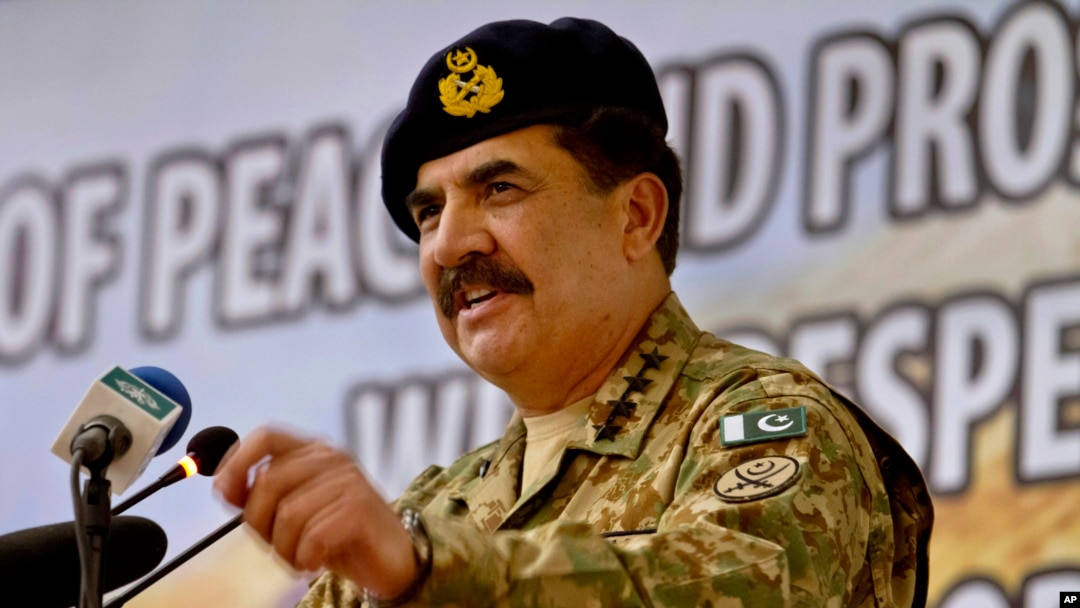Pakistan’s military has conducted a major exercise of ground and air power near the border with India, showcasing “combat-readiness of the armed forces” amid heightened tensions and fears of another war between the rival nations.
Prime Minister Nawaz Sharif along with his military Chief General Raheel Sharif inspected the exercises, with foreign ambassadors also in attendance Wednesday in the central Khairpur Tamiwali region.
The drill, called Thunder Lightening (Raad ul Barq), involved combat aircraft, tanks, artillery, mobile missile launchers and other heavy weapons.
WATCH: Video footage of military drills
Your browser doesn’t support HTML5
Pakistan Holds Military Drill Near India Border
It came just days after clashes with Indian forces across the disputed Kashmir frontier, known as Line of Control, left seven Pakistani soldiers dead.
At the exercise, Sharif warned the Kashmir border situation “remains sensitive” and blamed India for committing “grave violations” of a mutually agreed ceasefire there. He was referring to a 2003 ceasefire truce that has been rendered ineffective in recent months.
He said the military exercise shows "Pakistan is ready to confront any ambitious and reckless move by its enemies."
Sharif reiterated that the Kashmir dispute remains “the core issue of contention” between Pakistan and India.
”Killing of our innocent civilians and soldiers along the Line of Control (the disputed Kashmir border) is another act of aggression which warrants international attention.”
Pakistan says that at least 26 civilians have also died in recent clashes with India in Kashmir while thousands of villagers fled to safer areas.
Both countries blame each other for starting the conflict that India says has caused civilian and army casualties on its side.
India and Pakistan claim Kashmir in its entirety and have fought almost three of the four wars over the divided Himalayan region since gaining independence from Britain in 1947.
The two countries have since equipped their militaries with nuclear arsenal, raising fears another war could escalate into nuclear exchanges.
A bilateral wide-ranging dialogue to normalize ties and find ways to address Kashmir as well as other disputes remains suspended.
Mutual allegations of sponsoring terrorist attacks on each other’s soil have exacerbated diplomatic tensions in recent years, diminishing hopes for an early revival of peace talks between India and Pakistan.


